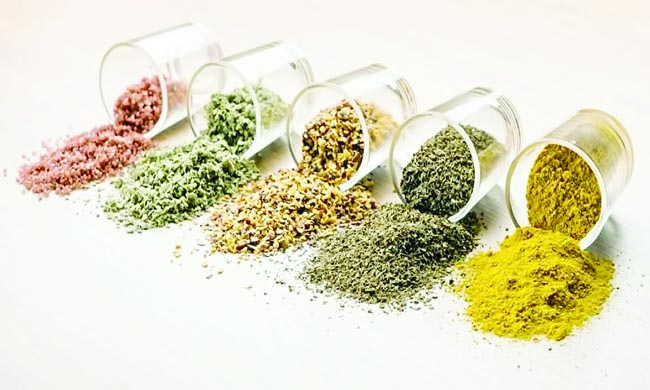
MSG, short for monosodium glutamate, is one of the most popular flavour enhancers in the world. It is an ingredient in many foods, from soups at Owambe parties, jollof rice, noodles, Chinese takeout, to even fried chicken.
Mr. Atanda Lawal, an Ibadan-based journalist is one of the many people who found that monosodium glutamate as a flavour in food is bad for them.

“I had stopped eating out because party foods usually have monosodium glutamate as a flavor. I usually feel terrible every time I eat it. All meals get me bloated, very uncomfortable, and have body aches and even fever and achy limbs,” recounted Mr. Lawal.
Mabel Ayanniyi is also careful with noodles after her doctor narrowed her frequent migraines at 15 to monosodium glutamate.
My doctor put me on a restrictive diet, slowly adding ingredients back in until we found that the trigger of my migraines was MSG. I still get migraines from stress, lights, weather, and lack of sleep too, but the quantity of migraines has dramatically decreased since my diet has changed,” said Mabel, a student at Olabisi Onabanjo University in Ago-iwoye.
MSG has been used as a food additive for many years. During this time, the American Food and Drugs Administration (FDA) has received many reports of concerning reactions that people have attributed to foods that had MSG in them, including headaches, flushing, sweating, and face pressure or tightness.
Other complaints are racing heartbeats, chest pain, feeling sick (nausea), weakness, lack of feeling (numbness), and tingling or burning in the face, neck, and other areas.
The fact that MSG isn’t the poison we’ve made it out to be has been well established. FDA has classified MSG as a food ingredient that’s generally recognised as safe. Still, reviews on it tell tales of obesity, tingling limbs, bloating, and headaches from dishes “laden with MSG.”.
Researchers have found no clear proof of a link between MSG and these symptoms. Dr. Adedoyin Osundina, a consultant gastroentrologist at the University College Hospital (UCH), Ibadan, described MSG as a form of glutamic acid, a type of amino acid that is found in the body and present in different natural foods such as sugarcane, cheese, tomatoes, fish, meat, and some vegetables.
Dr. Osundina said that although a lot of studies have documented different complaints many people who consumed foods containing MSG had, studies have also shown that these reactions are not expected when the amount of the food does not exceed 0.5 mg.
“Studies have said that when the amount gets to about three grammes, people can start to react. Some documented people complained about headaches, nausea, vomiting, and chest tightness. Some even talked about getting obese from eating too much of it.
“However, there have been counterstudies refuting these. Like obesity, it has been said that if you don’t actually eat more than what you should eat, you probably shouldn’t gain weight. So, one cannot say for sure that it is MSG that is causing or contributing to obesity.
“They talked about cancer, headaches, abdominal pain, diarrhoea, tingling sensations in the skin, becoming bloated, and all that, but studies have shown that unless you exceed the specific level of consumption, all of these symptoms are not actually likely to occur.
“Some even claim that it can cause hypersensitivity or allergic reactions. But from studies, there is not enough evidence to confirm that MSG can actually cause this. The FDA has approved it as a safe food ingredient, except for one that exceeds the limit. It is in so many foods, like chicken nuggets and fried chicken. Even though it is used as a preservative for some food,
Keep in mind, though, that a 3-gramme dose is a high one. A typical serving of an MSG-enriched food contains less than half a gramme of the additive, so consuming 3 grammes at one time is highly unlikely,” Dr. Osundina said.
But MSG is not new. In 1907, Japanese chemist Kikunae Ikeda boiled down a huge amount of kombu seaweed to extract a substance called glutamate. Why? It gives certain foods, like dashi broth, a long-lasting savoury flavour.
He coined the taste “umami,” then broke the substance down into MSG, which as a crystallised substance can be used like salt and sugar.
In recent years, umami has been called “the fifth”taste”—joining the more familiar tastes of sweet, sour, salty, and bitter—and is often described as savoury.
A year later, businessman Saburosuke Suzuki, acquired a joint share of the MSG patent and, with Ikeda, founded a company to manufacture the seasoning.
Tia Rains, a Chicago-based nutrition scientist, said in a reaction to CNN, “Many didn’t know that MSG is plant-derived.” He said the process of making MSG “is fermentation, which is very similar to how beer is brewed or how yoghurt is made. First, plants with sugar, like sugarcane or corn, are fermented with microbes to create glutamate, an amino acid found in food that’s also produced in our body and acts as a neurotransmitter. Then, sodium is added, and the glutamate is crystallised to become the salt-like MSG we see in supermarkets and kitchens now.”
But MSG’s misfortunes began in 1968, when a Chinese-American doctor, Robert Ho Man Kwok, wrote a letter to a medical journal titled “Chinese Restaurant Syndrome,” describing symptoms like “numbness in the back of the neck,” “general weakness,” and “palpitations.”
In actual fact, this was the genesis of “Chinese restaurant syndrome” to depict these symptoms that some people get after consuming Chinese food.
He suggested that MSG, along with other ingredients like cooking wine and high amounts of sodium, may have caused these symptoms.
Due to this, many restaurants publicly swore off MSG. Food and beverage publicists begged not to be asked about it. Diners experiencing discomfort after a meal blamed it on MSG.
In June, researchers at Covenant University, Ota, Ogun State, Nigeria, in a review titled “Monosodium Glutamate: Health Risks, Controversies, and Future Perspectives, published in the journal Agrociencia, concluded that MSG is more toxic than beneficial to public health and should, as much as possible, be eliminated from the diet.
This study, which evaluated some common detrimental effects of monosodium glutamate on the body system using past and recent findings from human and animal studies, declared that even the smallest quantity of MSG has harmful effects.
“We would like to state that although MSG has proven its value as an enhancer of flavour, different studies have hinted at possible toxic effects related to this popular food-additive. These threats might have hitherto been underestimated.
“In the meantime, people keep using ever larger amounts of MSG, unaware of the possible consequences. From previous studies and this present study, it is obvious that the dangers of the intake of monosodium glutamate outweigh the benefits derived from it.
“It is, however, highly advised that a possible substitute for MSG be made available to avert these dangers, as it could pave the way for the development of many other diseases, including organ failure, ultimately leading to death.
“Natural seasonings like locust beans can be looked into as a possible substitute for seasonings containing MSG. The use of MSG as a salt flip still needs more investigation for validation purposes,” the reaserch concluded.
What’s more, Dr. Osundina added, “Whatever you think that you react to, take it out of your food. It is not that without it, the food will not be sweet. Of course, there are other addictive substances that can be used as flavours in food. It is just like we preach with medicines; if there is any reaction, the individual should stop its intake.”
Despite continued claims of negative reactions to MSG from diners and decades of scientific trials that failed to prove the existence of MSG sensitivity, the FDA on its website said, “Although many people identify themselves as sensitive to MSG, in studies with such individuals given MSG or a placebo, scientists have not been able to consistently trigger reactions.”
However, in some cases, research findings are contradictory, and further studies in humans are needed. Still, individuals shouldn’t eat excessively large doses or consume it if they experience adverse reactions.
READ ALSO FROM NIGERIAN TRIBUNE








